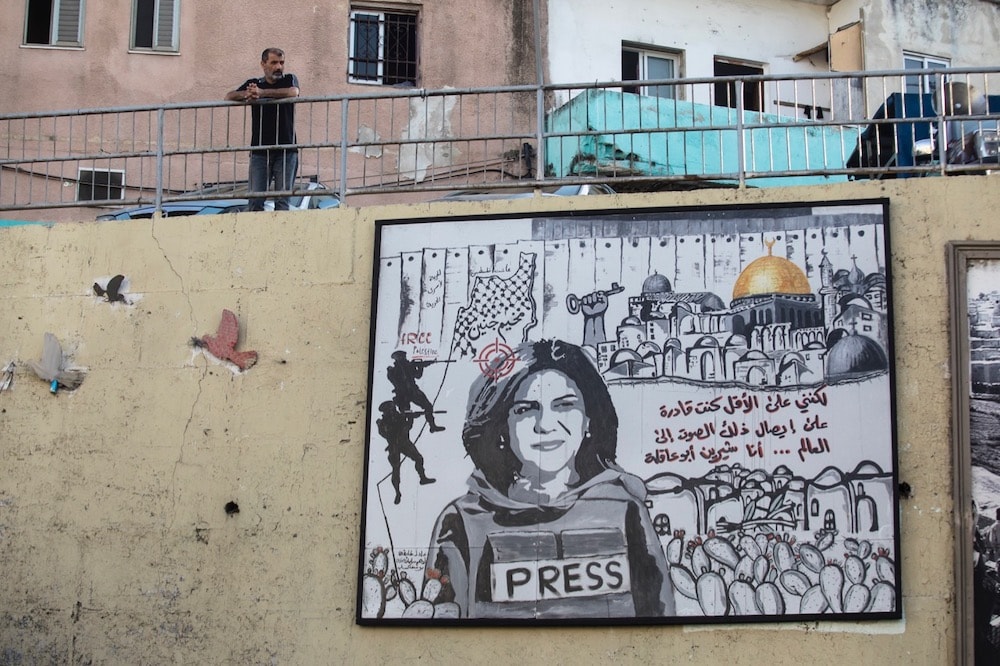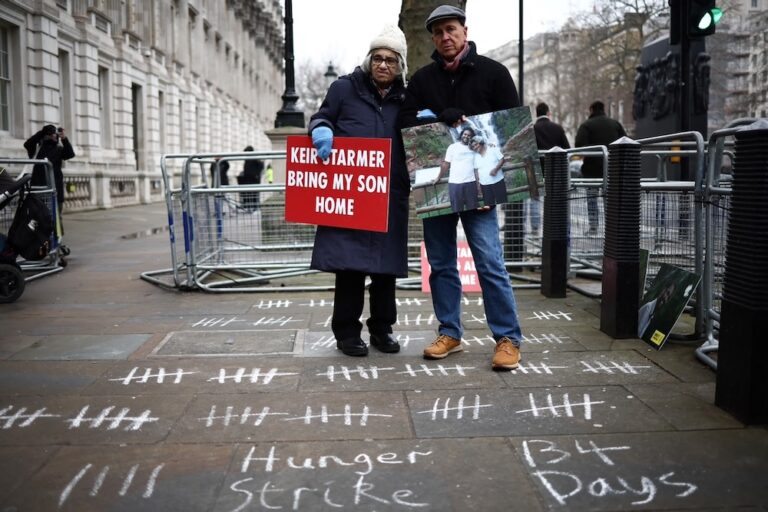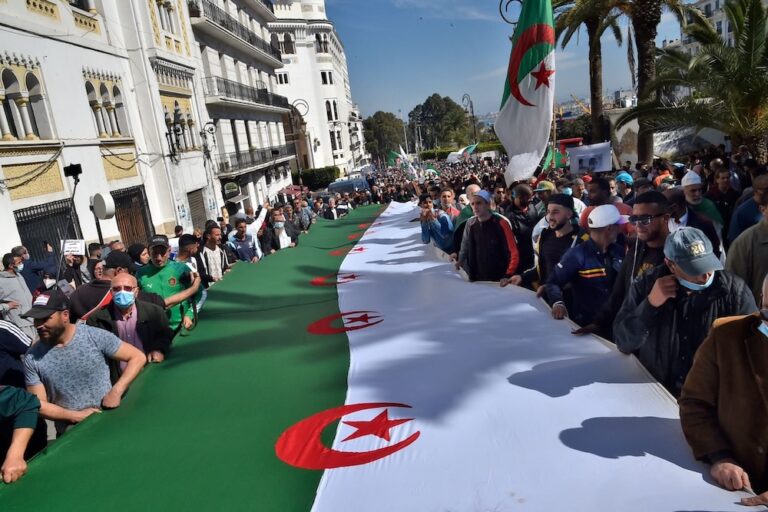Gulf Centre for Human Rights (GCHR) calls for increased protection of journalists in the MENA region and accountability for their murders.
This statement was originally published on gc4hr.org on 1 November 2022.
A report published by the Gulf Centre for Human Rights to mark the International Day to End Impunity
Introduction
Murders & other serious violations continue against MENA journalists
Journalists in the Middle East and North Africa (MENA) region continue to face grave violations of their civil and human rights, including murder by governments or armed groups, usually with total impunity. Countries such as Syria, Iraq, Libya, Palestine and Yemen continue to be classified among the most dangerous places for journalists.
The shocking murder of US-Palestinian journalist Shireen Abu Akleh on 11 May 2022 by Israeli Defense Forces may also go unpunished, as long as there is not enough pressure from the various international mechanisms. Within weeks, yet another Palestinian woman journalist, Ghufran Warasneh, was murdered while reporting on camera on 1 June 2022.
Women are further at risk due to gender-based threats of violence, defamation and insults, and attempts to humiliate and intimidate them online to prevent them from working. This has a silencing effect on women journalists throughout the region, where women have been surveilled in a gross violation of their privacy or had doctored (deepfake) images of them unclothed circulated on the Internet, including leading Al-Jazeera journalists.
As we mark the 10th anniversary of the UN Plan of Action on the Safety of Journalists and the Issue of Impunity, the Gulf Centre for Human Rights (GCHR) calls for increased protection of journalists in the MENA region and accountability for their murders.
As part of GCHR’s project with the UNESCO’s Global Media Defense Fund on “Investigating impunity for crimes against journalists in the Arab States, while providing protection”, GCHR carried out a survey of journalists’ protection needs and awareness of UN and EU mechanisms, which shows that our support is desperately needed. Of the 55 journalists surveyed from at least 10 countries, 82% of journalists feel a “high” or “very high” level of risk in their work.
In March 2022, GCHR launched a survey of journalists’ protection needs and awareness of UN and EU mechanisms and received 55 responses, including 27% from women. The responses came from journalists from Bahrain, Syria, Lebanon, Iraq, Kuwait, Oman, Yemen, Tunisia, Morocco, and Algeria. Some of them are prominent journalists who have been imprisoned or exiled. The survey asked which journalists’ protection groups they knew about and what kinds of assistance they needed.
Among the comments that are most illuminating from the survey about the needs of journalists in the MENA region, are several from Syrian journalists. “For us, as Syrian journalists, we do not have any agency that specialises in protecting us, especially since most of us are wanted and our lives are threatened by several parties, which is obvious by looking at the number of journalists who were killed in Syria while covering the events of the war. Please support journalists more so that they can report the news and cover the events safely.”
Another Syrian journalist commented “It must be part of the constitution of any country to protect journalists and this should be included in the electoral programs of any party running for power.”
This is a very real question for GCHR as it tries to help journalist inside their own countries, as well as those in exile who fled for their lives. What more can we do to help them?
An Algerian journalist responded, “Except for relocating journalists from the environment that hinders the professional practice of their work, I do not see any other way to help them. Even in this case, being away from the environment under investigation will inevitably lead to a loss of sense of what is actually going on. In the end, I think it’s a vicious cycle. A real dilemma.”
“A journalist’s access to protection enables them to access issues that are more relevant to reality and to reveal the facts and the underlying causes behind political, social and economic problems,” said another journalist. One Iraqi journalist commented: “It’s necessary to discuss the situation of the families of relocated journalists who remain inside the country, and to also count the number of journalists who wanted to leave the areas under militia control but were unable to leave because their families would become hostages.”
Perhaps most illuminating of all, a journalist from Iraq said, “I really hope that the story of protecting journalists does not remain trapped in ink, theories, and on laptops. The topic needs a smart solution on the ground.”
Every year, GCHR publishes a report on the International Day to End Impunity and holds an awareness-raising event to help shine a light on the journalists killed in the past year. This report includes new cases of journalists killed with impunity in Iran, Yemen, Palestine.
They include Shireen Abu Akleh, a US-Palestinian journalist who worked for Al-Jazeera for 25 years, who was killed on 11 May 2022, while covering a raid by the Occupation Forces in the Jenin Refugee camp in the West Bank. Abu Akleh was shot even though she was wearing a blue vest with “PRESS” written on it. Palestinian journalist Ghufran Harun Warasneh was shot dead by Israeli forces on 1 June 2022 at an Israeli checkpoint near the Al-Arroub refugee camp in the occupied West Bank. Warasneh was killed as she commuted to her new job at Dream radio station in the city of Hebron.
In Yemen, several journalists have been killed by explosive devices planted in their cars. On 15 June 2022, 42-year-old journalist Saber Noman Al-Haidari, a correspondent of the Japanese NHK TV Channel, was killed after an explosive device planted in his car blew up in Al-Mansoura, a city located in Aden Governorate. On the evening of 9 November 2021, 27-year-old journalist Rasha Abdullah Al-Harazi, who was nine months pregnant, was killed when the car driven by her husband exploded while they were driving to the hospital for her to give birth. An explosive device had been planted in the car.
In Iran, journalists have died of medical neglect. Baktash Abtin (also known as Mehdi Kazemi) was an Iranian poet, writer, human rights defender, and film maker. Abtin was charged on 15 May 2019 with “illegal assembly and collusion against national security” and “spreading propaganda against the state”. He was sentenced to six years’ imprisonment. Baktash Abtin entered Evin Prison in Tehran on 26 September 2020. After being placed into a medically induced coma following complications from Covid-19, Abtin died on 08 January 2022, at the age of 48.
Sometimes there appears to be justice in cases of journalists killed. But sometimes that justice is false. In Iraq, the man arrested for killing journalist and well-known security expert Dr. Hisham Al-Hashemi (and who was imprisoned for it) was able to bribe his way out of prison this year, according to a news report in July 2022 to mark the second anniversary of his killing on 06 July 2020. Iraqi Prime Minister Mustafa Al-Kadhimi said: “We promised to arrest the killers of Hisham Al-Hashemi and we fulfilled the promise.” Al-Hashemi’s killer, was among a group of four people who carried out the crime. He admitted in a recording broadcast on state television that he shot Al-Hashemi with his government pistol.
This year, on 2 November 2022, GCHR is organising an event in Tunis to mark the International Day to End Impunity, co-sponsored by UNESCO’s Regional office in Beirut and IFEX. This report on impunity will be launched at the event.
This report presents the photos of a group of journalists in the Middle East and North Africa, who have sacrificed their lives for freedom of speech, so they must be honoured and memorialised.
In most of their cases, there has been total impunity for those responsible for abusing or murdering the journalists mentioned in this report, particularly for the masterminds of murders such as Saudi journalist Jamal Khashoggi. As we mark the International Day to End Impunity on 2 November 2022, we again call for justice in their cases.



